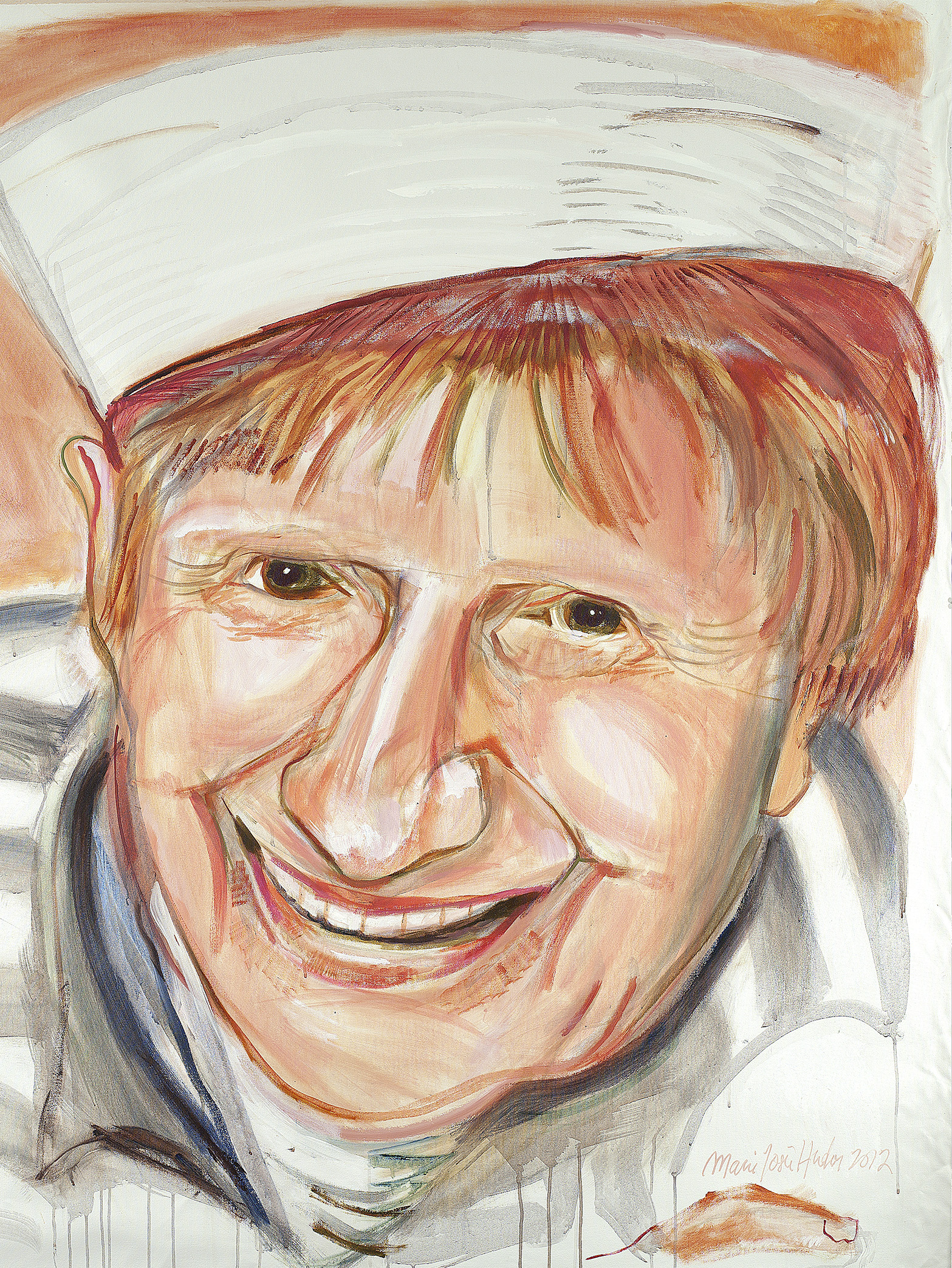
Early Career
Rose-Alma Ouellette was born to François Ouellette and Josephine Lasanté in the faubourg à M’lasse, a working-class neighbourhood in the south-east end of Montréal. As a teenager, she dropped out of school and took a job at a shoe factory in order to provide income for her large family. Out of her 20 siblings, only three sisters lived to adulthood.
Ouellette took to the stage at the age of 12. She won several local singing and theater contests. At the age of 19, she was noticed by Paul Hébert after performing at the Ouimetoscope and Lune rousse theatres in Montréal. She later met Olivier Guimond (senior), with whom she formed a duo that quickly became popular throughout Québec. At Guimond’s suggestion, Rose took the stage name La Poune in order to complement Guimond’s own stage name, Ti-Zoune. This marked the beginning of a prolific career on the burlesque stage, which she pursued well into her old age.
Burlesque theatre dominated the Montréal entertainment scene from the 1920s to the 1950s. The genre, originating from the United States, is characterized by humorous monologues, variety acts (such as vaudeville, musical comedies, operettas and dances) as well as improvisational pieces. The style was adapted for French-Canadian stages by Jean Grimaldi (whose theatre company performed throughout Québec, Ontario and the Eastern United States) and Olivier Guimond (senior). During this era, Ouellette became the uncontested queen of burlesque theatre in Québec.
First Woman to Direct Two Playhouses in North America
In 1928, at the age of 25, Ouellette assumed the role of director of the Cartier theatre in the Saint-Henri district. She assembled a company that included Juliette Pétrie, who would become one of Ouellette’s greatest partners on the stage. In 1936, Ouellette assumed the role of director of the Théatre national. Under her direction, this theatre experienced a golden age. For 17 years, she performed to sold-out crowds for both matinees and evening shows.
Every night, she performed her most successful song, “C’est d’la faute à poupa” along with some of the most well-known Québécois actors of the time, such as: Arthur and Juliette Pétrie, Manda Parent, Hector Pellerin, Georges Leduc, Paul Desmarteaux, Juliette Huot, Juliette Béliveau, Rose Rey Duzil, Olivier Guimond (junior), Olivier Guimond (senior), Pierre Thériault, Jacques Normand, Léo Rivest and Claude Blanchard. It is also at the Théâtre national and under Ouellette’s mentorship that Alys Robi, internationally renowned singer, made her début at the age of 13.
The advent of television in 1952 and the development of cabarets sounded the death-knell of the burlesque genre (see French-Language Theatre). Television offered free entertainment without the need to leave the house. Cabarets (as opposed to theatre halls) allowed the sale of alcohol on premises, and were thus much more profitable than the burlesque theater. In 1953, Ouellette left the Théâtre national in order to join Jean Grimaldi’s company. In 1958, she began performing on the cabaret scene with Juliette Pétrie, Gerry Morelle, Simone Mercier, Gaston Boileau and Louis Armel.
A Versatile Artist: Music, Television and Film
In the 1930s and 1940s, La Poune recorded a series of sketches and comedic songs. She was the first Québécoise artist to record at RCA Victor. She received $25 for every song she recorded, but received no royalties from the proceeds of record sales.
In 1960, she made her television debut on Radio-Canada in a play written by André Laurendeau
called Les Deux Valses. She then played small roles in such soap operas as Rue des Pignons, Chère Isabelle, Les Brillant and Les Moineau et les Pinson.
On stage, Ouellette proved that she was able to take on more serious roles, notably in the play Un jour, ce sera ton tour, written by Serge Sirois (performed at the Théâtre du Nouveau Monde in 1974). During this time, she pursued her career in comedy and from 1967 to 1993, performed at the Théâtre des Variétés, directed by Gilles Latulippe.
She appeared on film in Cœur de maman (1953) by René Delacroix, in L'Apparition (1972) by Roger Cardinal as well as in Les Aventures d'une jeune veuve (1974) by Roger Fournier. In the early 1990s while approaching her 90th birthday, she went on a tour of Québec with singer Roger Sylvain. She also appeared in several commercials for Molson beer and General Motors of Canada. She passed away in Montréal at the age of 93.
Artistic Legacy and Distinctions
As a pioneer of burlesque theatre and comedy in Québec, Rose Ouellette influenced several generations of francophone artists and comedians. Her talent and contribution to the Québec stage was rewarded with several awards and distinctions. In 1983, she was awarded the Félix tribute award during the ADISQ Gala. In 1991, she was awarded the Prix Victor award at the Festival juste pour rire (along with Juliette Pétrie). She was inducted as a Knight of the Ordre national du Québec (National Order of Québec) in 1990. A street in Montréal has since been named in her honour.
Publications
- Vous faire rire, c'est ma vie (Québécor, 1983).
- Comment atteindre le bel âge en grande forme (Éditions à succès, 1985).

 Share on Facebook
Share on Facebook Share on X
Share on X Share by Email
Share by Email Share on Google Classroom
Share on Google Classroom


